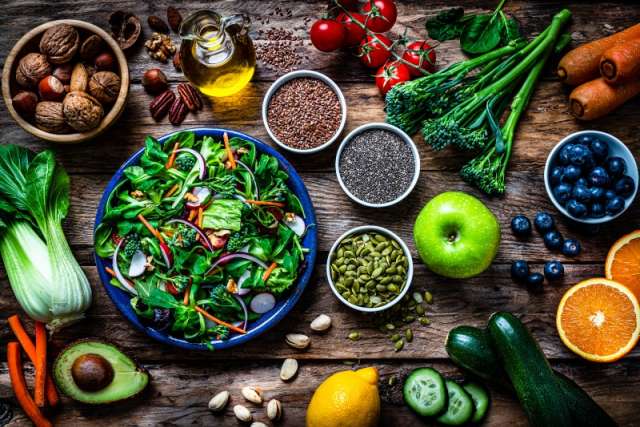The term "superfood" has become a mainstay in the lexicon of health enthusiasts and marketers alike. But the promise of extraordinary health benefits may obscure a more nuanced understanding of nutrition.
Vijaya Surampudi, MD, MS, clinical chief of the UCLA Center for Human Nutrition, wants to separate fact from fiction when it comes to the term ‘superfood.’
"The word ‘superfood’ is not necessarily a scientific term. It's more of a food marketing strategy," she explains. Because of this, she says, we should question the superiority often attributed to certain foods.
Dr. Surampudi's research further challenges common perceptions that certain berries have more antioxidants than any other food. She confirmed that "some spices and herbs actually have higher antioxidants than berries" and that herbs like rosemary “have an incredibly high antioxidant level" compared to some of our favorite produce.
These insights underscore the importance of looking beyond the superfood label to the actual nutrient content of our foods. For example, Dr. Surampudi says, “adding spices and herbs into your cooking” is also a simple way to get nutrients.
Learning that some spices have higher antioxidant levels than berries gives reason to examine other myths surrounding superfoods:
Superfood fiction vs facts
The impact of superfoods on diseases
- Fiction: Superfoods can cure diseases
- Fact: A balanced diet rich in a variety of fruits, vegetables, whole grains, and lean proteins are important for maintaining good health and can prevent certain diseases
Superfoods and weight loss
- Fiction: Some superfoods are advertised as being able to accelerate weight loss
- Fact: Weight loss involves a combination of diet, exercise, and lifestyle changes. No single food or supplement will cause considerable weight loss
Specific superfoods vs. a variety of fruits and veggies
- Fiction: Foods labeled superfoods such as spirulina, chia seeds, and quinoa are touted as being nutritionally superior to common fruits and vegetables.
- Fact: While these foods are nutritious, you can also obtain essential nutrients in less expensive foods. (i.e., flaxseeds are a great alternative to chia seeds, and brown rice or whole wheat products can substitute for quinoa).
The power of kale
- Fiction: Kale is the healthiest green you can eat
- Fact: Other greens like spinach, Swiss chard, collard greens, and romaine lettuce have their own unique profiles of vitamins, minerals, and other beneficial compounds.
Science-based claims vs food marketing
"The term superfood is definitely a marketing label that brands will put on products to try to promote selling," says Ashley Bocek, MS, RD, LD, a registered dietitian at UCLA Health.
She urges consumers to scrutinize the ingredient lists, especially in packaged foods, to discern truly nutritious choices from cleverly disguised junk food. Items such as breakfast cereals, premade smoothies, and even some plant-based meat products that are high in processed ingredients like salt and sugar can negatively impact our health.
Beneficial foods may not come with a superfood label but are inherently rich in vitamins, minerals, and other essential nutrients.
"Fruits, vegetables, and grains are your superfoods, because they give you those extra health benefits that your body needs,” she says.
When navigating the crowded landscape of health claims, it can be difficult to determine who to trust. Bocek suggests looking for foods approved by the U.S. Food and Drug Administration.
“This allows us as consumers to make evidence-based choices,” Bocek says. Furthermore, she adds, when doing research on foods, makes sure you check the validity of the source providing the information to differentiate fact-based claims from social media hype.
“If you’re assessing the credibility of nutritional information online or on social media, make sure you check everyone's credentials and look at resources that they're using. If they're citing articles, make sure you read the article for yourself."
In crafting a diet that truly supports our health, we should focus on diversity and nutrient density. Dr. Surampudi and Bocek remind us that the healthiest diets are often those that are varied and colorful, filled with fruits, vegetables, grains – and a pinch of skepticism for single-food solutions.




